INFORMATION FOR
INTERNATIONAL STUDENTS
HOW TO BECOME A STUDENT
AT THE SFSH
THE AUDITION
Things to bring along to the free audition:
- Completed application form
- CV in tabular form
- Current photograph
What we expect from you:
- Classical Monologue (until 1900)
- Contemporary Monologue (after 1900)
- Song of your choice (music CD and instruments may be brought along)
The audition process:
- Group movement and acting training
- Presentation of the monologues (should last approx. 5 minutes each)
- Presentation of the selected song
- Improvisation tasks or text work
After the audition, the artistic leadership will give you honest and detailed feedback. If you are successful, you have just cleared your first hurdle and have been accepted for a vocational training at the SfSH!
ORIENTATION COURSE #BECOMEANACTOR
In our acting workshop #becomeanactor in eight German and Swiss cities (Hamburg, Bremen, Stuttgart, Erfurt, Göttingen, Schwerin, Munich and Zürich), the ambition to stand on stage can be put to the test in a hands-on and fun way!
The workshop (2-4 days) is aimed at all participants who are interested in learning what acting is an dwhat it means to slip into various roles and play another character. Give it a try and find out what acting means to you.If you are loking for a career in acting, an orientation course can help you decide whether you have the necessary enthusiasm, creativity, courage and discipline to master our full-time vocational training.
At the ende of the course, you will receive detailed feedback from the teachers. A training recommendation replaces the entrance audition and could be the first step towards your vocational acting training at the SfSH.
Requirements:
Minimum age is 15 years, no previous knowledge is required.
PREPARATORY SEMESTER
The preparatory semester is a thorough technical preparation and can be your gateway to our vocational traning! The aim of this semester is to acquire a sound basic knowledge of acting. It gives you optimal starting conditions to start your training or to take part in the next audition.
If the feedback is positive, you can also start your vocational training at the SfSH without an audition. Under the guidance of professional teachers, your capability to express yourself will be trained and expanded. In process-oriented work, you can learn to develop your strenghts, overcome weakness and meet the challenges of an acting education.
The course introduces you to role work and scene study. Classes focus on stage presence, expression, improvisation and imagination. In the preparatory semester, you can expand your skills and prepare for the vocational training step by step. The preparatory semester at the SfSH will leave you enough tim eto pursue ongoing university studies or a job.
Classes:
- Speech techniques
- Acting training/ techniques
- Improvisation
- Imagination work
- Dance
- Film seminar
Requirements:
You must attend an introductory training with a general information talk or have a personal conversation with us beforehand.
Costs:
The preparatory semester costs 299,-€ per month plus a one-time administration fee of 60,-€ (957,-€ total).
Time:
The preparatory semester takes place three times a year; each semester lasts three-months. The training schedule consists of nine hours spread over three evenings a week. Currently the lessons take place every Tuesday, Wednesday and Thursday between 6 and 10 pm.
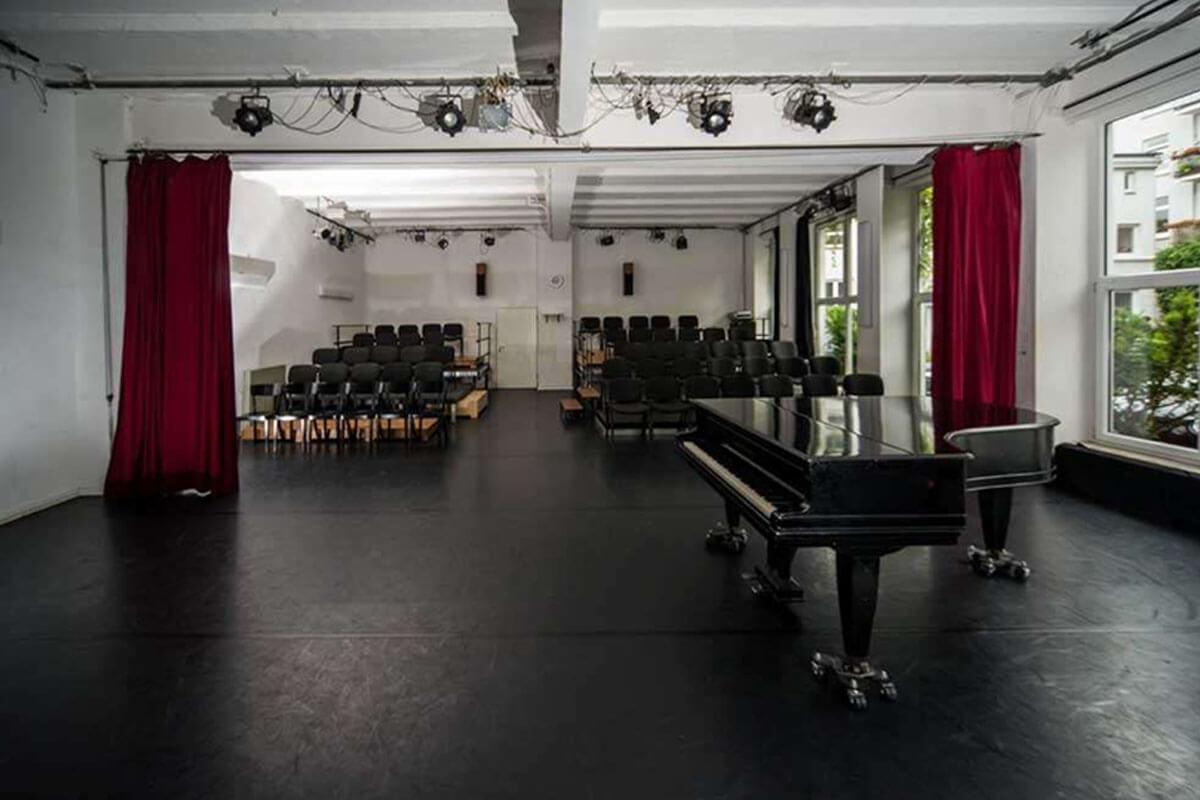
THE DEGREE:
THEATRE AND/ OR TELEVISION/ FILM
METHODS
Diversity of methods is our guiding principle
We are convinced that only actors with a wide range of artistic skills can maximize their qualitative career opportunities. In short, the more you can do, the better your chances are of sustaining yourself in a professional acting career.
That is why a diversity of methods is our guiding principle. This diversity begins with basic physical training in yoga, rythm and dance/ choreography and leads to the study of all current acting methods according to Grotowski, Stanislawaski, Meisner, Stella Adler, Michael Chekhov and Kristin Linklater voice training technique.
FOCUS
Practice oriented
Because we cooperate with various television productions, you will be given the opportunity to work as an extra or smaller actor during your vocational training, for example in the series "Rote Rosen". These opportunities and the close cooperation with the production management will help you overcome any inhibitions in front of the camera. We also work in close cooperation with the Hamburger Kammerspiele, the Altonaer Theater, the Schleswig Holsteinisches Landestheater and the Lüneburger Theater, where you will be given the opportunity to perform stage roles during your training.
DEGREE
The three-year training is divided into six semesters, with approximately 25 working hours per week. It begins in September of each year. Classes take place alternatively in larger groups, small groups and individual work. The first year of the training will be taught in English. Starting with the third semester, classes will commence in German. Until the middle of the 5th semester, all the students work according to the same curriculum. Afterwards, the students can choose between a degree in stage or screen acting. It is also possible to choose both degrees.
REFLECTIONS OF STUDENTS
"I decided to graduate with a theatre degree because there is an energy and emotionality on stage that I can't find anywhere else. from naturalistic classics to grotesque modern pieces: a magical game of beauty and truth."
- Tim Nelki, Theatre Graduate 2021
"I decided to do a film degree because I am fascinated and enthusiastic about the possibilities that can be realised with films today and I enjoy performing in front of the camera. For me, no other degree would be an option."
- Anika Lamade, Film Graduate 2021
"I chose the double degree because art knows no boundaries and choosing between theatre or film would thus constrain the art."
- Abid Ciplak, Double Graduate 2021


THE TEAM:
TEACHERS AND GRADUATES
Learn from experience, stories, and admiration- not from a textbook. Our teaching team consists o fintentional theatre and film professionals with many years of artistic and educational experience. Their first-hand film and stage experience, contacts and projects bring our students closer to the professional world.
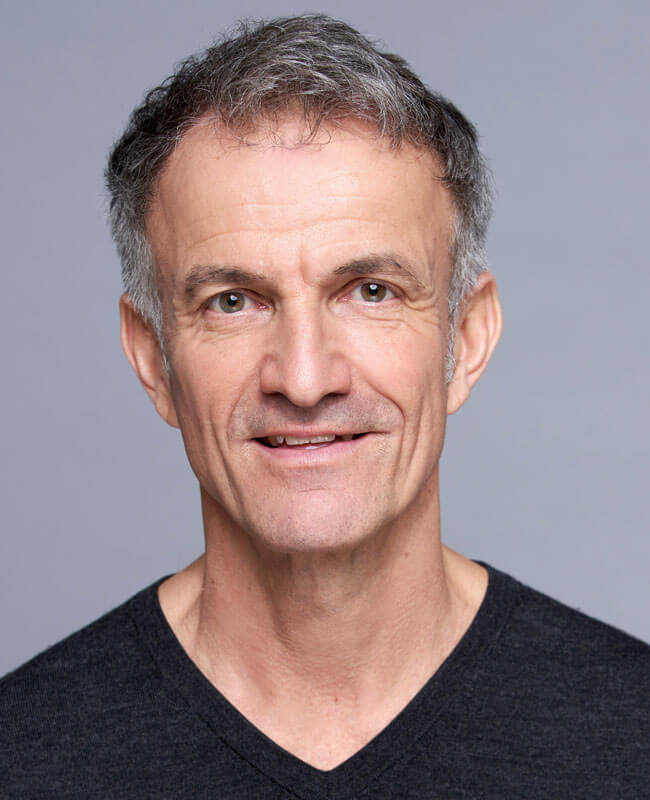
Jan Oberndorff
Artistic Director SfSH
Lecturer scenic improvisation and song interpretation
Since I am not only a lecturer, but also a part of the artistic leadership of our school together with Uli, I would like to highlight two aspects that make our work particularly interesting for young artists from abroad. On the one hand, our teachers: our team itself is extremly international and diverse. On the other hand, methodically our three year curriculum contains all globally relevant approaches. This seems important to me because, on the one hand, the students are given the freedom to explore for themselves which methods work best for their own creative freedom. On the other hand, the researched knowledge of diverse methods also gives the opportunity to communicate with a wide variety of artists worldwide.
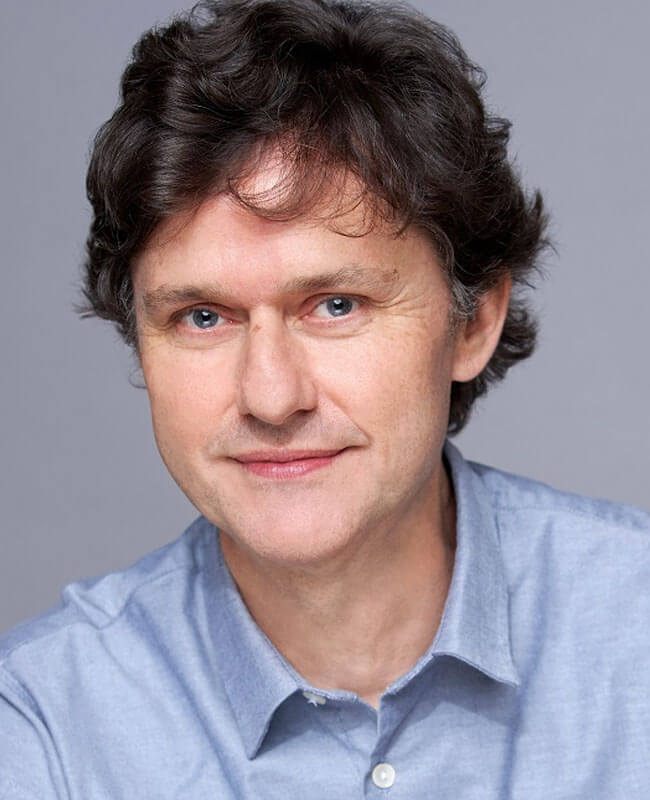
Ulrich Meyer-Horsch
Artistic Director SfSH
Lecturer scene study, improvisation and Michael Chekhov Technique
The centre of our work is love. As performers, we love our parts, we love the work in the ensemble, the training, the challenges, our struggles with growing beyond limits. We love our audience, and we love to explore new territories. Having worked throughout Europe, East Asia, the Middle East, and South America for two decades, it is exciting to bring the richness of world theatre back to our school. Germany has a bold film and theatre tradition to offer in this intercultural exchange, and our students get the opportunity to expand far beyond their own cultural horizon.
Ever year, the SfSH accepts new students with brilliant potential and contagious enthusiasm. Many of them become successful theatre and/ or film actors. Some of them even end up behind the camera or on the director's chair. Each student experiences their very own personal and professional growth at the SfSH. The following statements provide interesting insights from four of our outstanding and succesful graduates Cem Ali Gültekin, Mersiha Husagic, Niklas Löffler and Yannick Meyer.

Yannick Meyer
Student at the SfSH from 2011- 2014
Degree: Theatre
Occupation: Theatre and TV actor (Unter uns)
I remember my time at the SfSH with great pleasure. It was a very formative time for me. I developed both as a person and as an actor. I came to terms with my limits and rose above them. I attended this school every day with great joy. The SfSH gave me the tools to be successful on my path as an actor.

Mersiha Husagic
Student at the SfSH from 2009- 2012
Degree: Theatre
Occupation: Theatre- and Film actress, director
Next to skills like dancing, singing and acting techniques, I also learned to drop all my inhibitions. I was able to get to know all my facets in the safe space of the SfSH. I could test out my limits and therefore learned a lot about myself as a person, something absolutely invaluable to me.
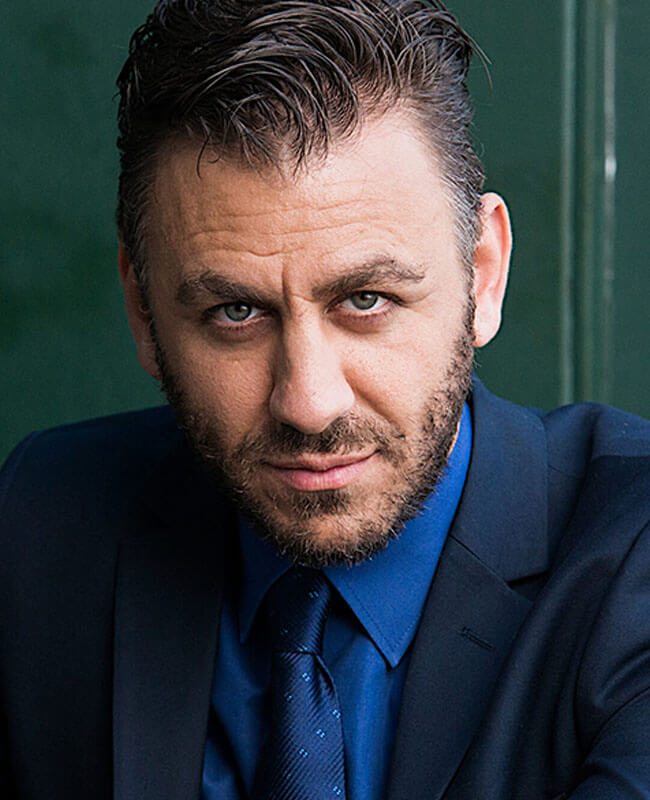
Cem Ali Gültekin
Student at the SfSH from 2005- 2008
Occupation: Theatre and TV actor (Tatort, Großstadtrevier), Comedian
My time at the SfSH was incredebly valuable to me. Here, I got to know and learned to love my artistic potential and was able to strengthen my self-confidence in acting. The amazing tools that the Schule für Schauspiel Hamburg gave me continues to help me in my working life to this day. I am very grateful for that abd feel deeply connected to the school. After many years as an artist and countless encounters with other artists, I would like to advise prospective acting students to fight for their dream and not to give up too early. This industry requires patience and an iron will to develop further and to constantly adapt to the given requirements. Those who face theses challenges will be rewarded in the end.
THE HISTORY: THE SFSH AND ITS BEGINNINGS
The Schule für Schauspiel Hamburg (SfSH) was founded under the name O33 in 1987 by Olivia Rüdinger and Michaela Uhlig. It was initially conceived as a postgraduate acting school for professional actors, singers and dancers. At the time, this concept was completely new and unique in Germany, corresponded with the emerging Zeitgeist and was therefore met with great interest. In cooperation with the Agentur für Arbeit (formerly ZBF), artists from the entire German-speaking world continued their training in the areas of acting, singing, dance and speech at O33.
Encouraged by the great response of their concept, in 1992 the directors decided to offer vocational training under the name Schule für Schauspiel Hamburg. SInce 1997, the SfSH has been supported by a non-profit organisation that is commited to the vocational training of young actors. Numerous workshops with renowned international teachers, centering around theatre or film projects, music events, readings and much more are financed by the association's membership fees.
Jan Oberndorff, actor, director and lecturer joined the leadership team in 2011. He himself is a former graduate of the SfSH. Together with Katharina Jann and Ulrich Meyer-Horsch, he took over the management of the SfSH in 202, succeeding Michaela Uhlig and Olivia Rüdinger. In 2004, the SfSH was honoured fpr the excellent quality of its vocational training with the Friedrich-Schütter-Preis.
Today, the SfSH is internationalising its work and environment. Its goalis to intensify the international mobility of its students and staff as well as welcoming an increasing number of students from abroad for a full-time vocational acting training. In this way, the SfSH is hoping to diversify and improve its education as well as increase the qualityof its students' and staff's learning and working experience.
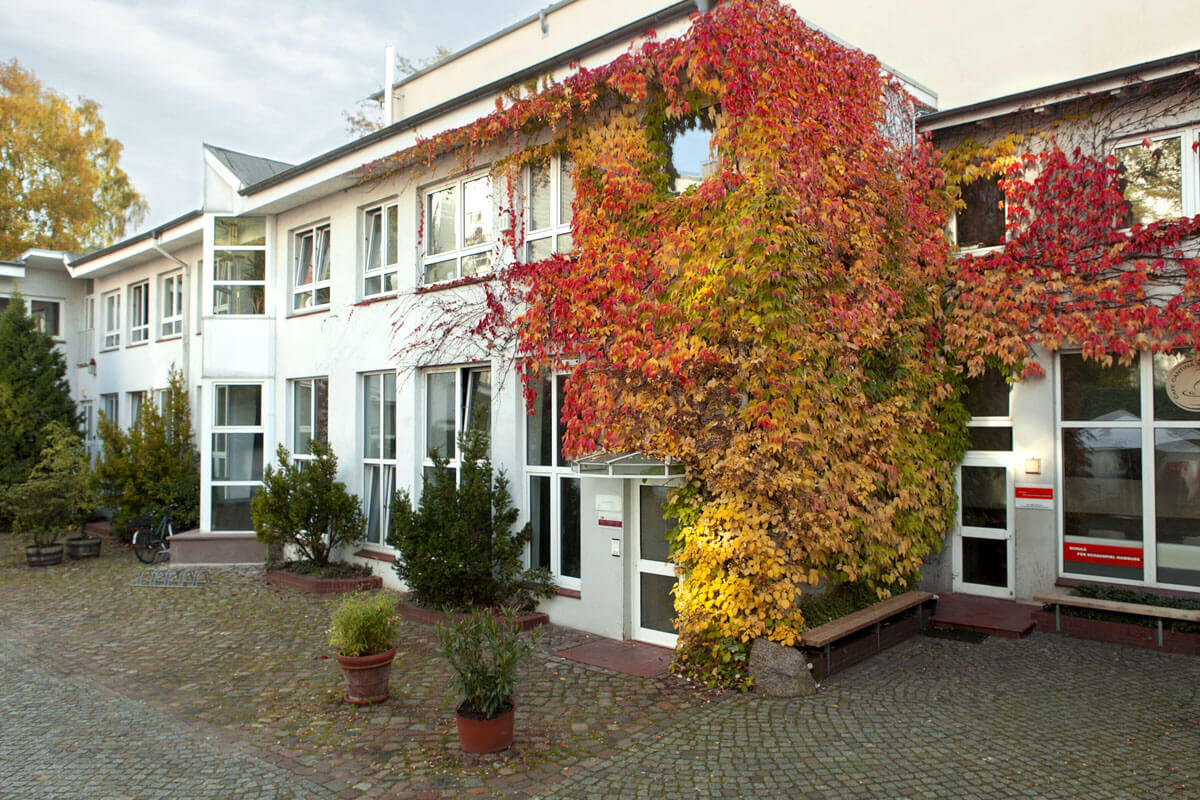
GENERAL INFORMATION: LEADERSHIP AND OFFICE TEAM
LEADERSHIP
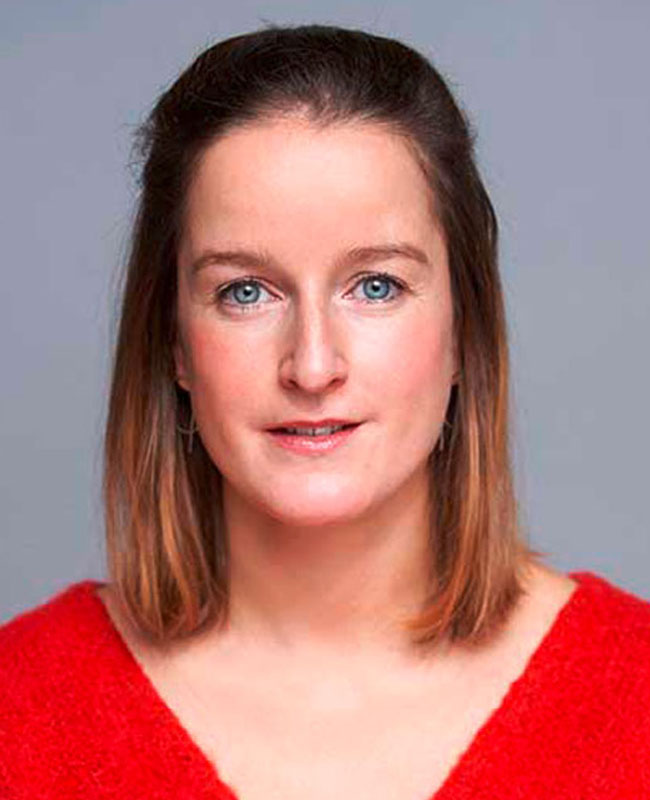
Katharina Jann
CEO

Ulrich Meyer-Horsch
Artistic Director

Jan Oberndorff
Artistic Director
TEAM
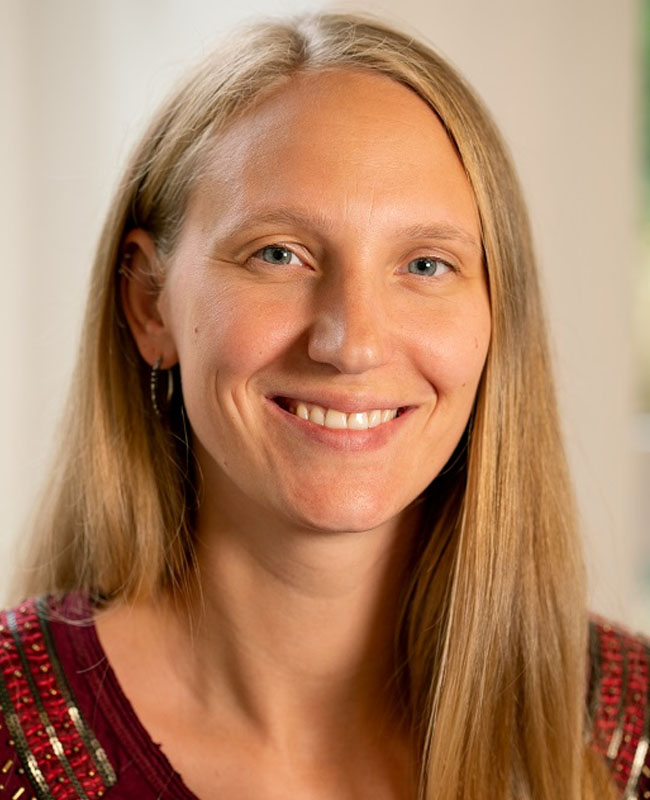
Marlena Hamann-Romero
Project Management
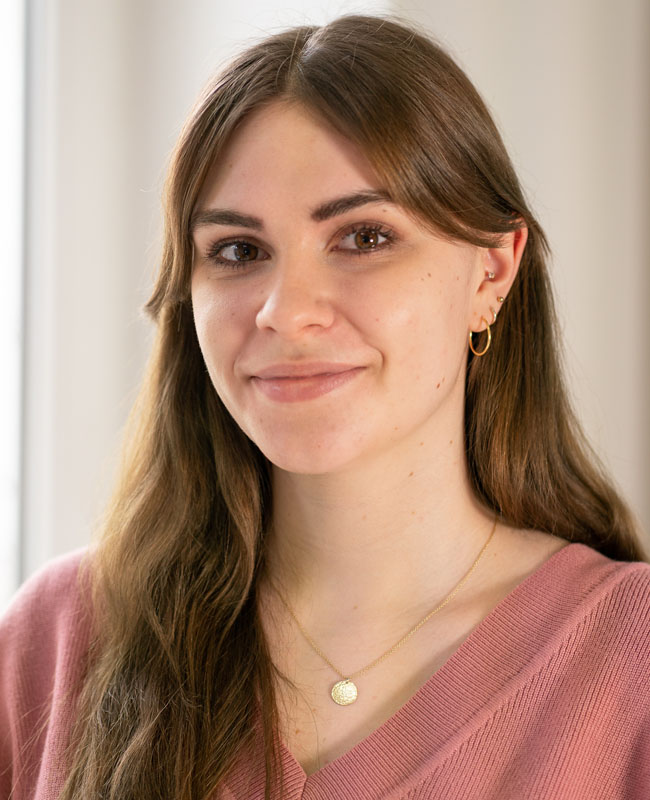
Sophia Jenkel
Office Management
THE CITY: WHY CHOOSE HAMBURG AS A BASE?

HISTORY
The city of Hamburg has a Hanseatic history of trade, autonomy and economic power. It all began in the year 808 CE, when Emporer Charlemagne ordered the construction of a castle on the marshy land between the river Alster and the river Elbe to fend off Slavic tribes. The fort can still be seen in the city's coat of arms. In 1241, the prosperous trading city of Lübeck formed an alliance with Hamburg, which eventually resulted in the league of Hanseatic Cities. Membership to this powerful commercial and defensive alliance between coastal cities in Northern Europe would be crucial to Hamburg's economic position in the world.
After London and Amsterdam, the Hamburg stock market was founded in 1558. The city's continous growth and prosperity were arrested briefly when Napoleon's armmíes invaded the city in 1810, cutting off much trade. Following Napoleon's defeat, the city of Hamburg was liberated.
In 1869, Hamburg adopted a democratic constitution that established the separation of chruch and state and guaranteed freedom of press, assembly and association. Soon after, in 1871, Hamburg became part of the German Empire, but was able to retain its self-ruling status. Transatlantic trade eventually made Hamburg the second largest port in Europe and the starting point for many settlers of the "New World".
By the turn of the 20th century, Hamburg's population had grown to 1 million. After the outbreak of the First World War, 230,000 inhabitants took part in the war- mostly young men as soldiers in Prussian regiments, 35,000 of whom lost their lives. With the strong reliance on trade, Hamburg's economy was severly crippled by the disruptions to commerce and trade following the war. The city also lost most of its commercial fleet to war reparations, as well as many of its trade routes when post-war Germany was forced to give up its colonies.
Before the Second World War, Hamburg had the largest Jewish community in Germany. This community suffered the same fate as those elsewhere in Germnay under the Nazi regime.The constitution of Hamburg was suppressed and Hamburg's large Jewish population was deported and murdered almost entirely, Today, the many Stolpersteine (commemorative cobblestones found throughout the city) are reminders of the victims of Nazi oppression. The few preserved buildings at the Neuengamme concentration camp now serve as a memorial.
TODAY: CULTURE AND MEDIA CITY
Today, Hamburg is the second largest city in Germany. Its 1.8 million inhabitants are as diverse and colouful as its districts. Its harbour is the third largest in Europe and secures Hamburg a steady global orientation. Economically and scientifically, Hamburg is a hub for aerospace engineering, life sciences, information technology, logistics and the media. But also culturally, Hamburg has a lot to offer! Hamburg picturesque architecture is a daily aesthetic reminder of its Hanseatic times.
Many of these buildings are the workplace of some of the over 10.000 artists that call Hamburg their home. Together, they enrich more than 60 theatres, 100 music clubs, 60 museums, 30 cinemas and more. Countless operas, ballets, concert halls and festivals turn Hamburg into a city full of liveliness. Whether Elbphilharmonie, Deutsches Schauspielhaus, Thalia Theater, Staatsoper, John Neumeier's Hamburg Ballet, the musicals, Studio Hamburg, the NDR: There's just everything here. The SfSH is located in Hamburg's trendiest neighbourhood: the Schanzenviertel. Let yourself be swept away by this unique atmosphere. We do it too- every day!
Our school has succeeded in becoming a part of the culture of this city over the last thirty-one years. Graduates and third year students perform at the Thalia Theater and the Schauspielhaus, as well as at the Kammerspiele, the Altonaer and the Ohnsorg Theater. Our graduates perform on all stages of the city and are part of countless film productions. Hamburg's green environment, beautiful ciyscape, its waterways and cultural vibrence set it apart as a living and working space from may other popular cities in Germany. Come and see for yourself!
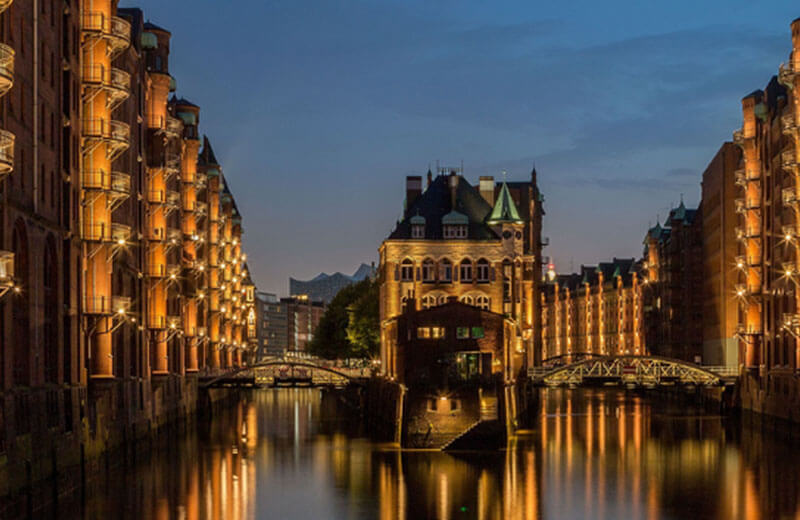
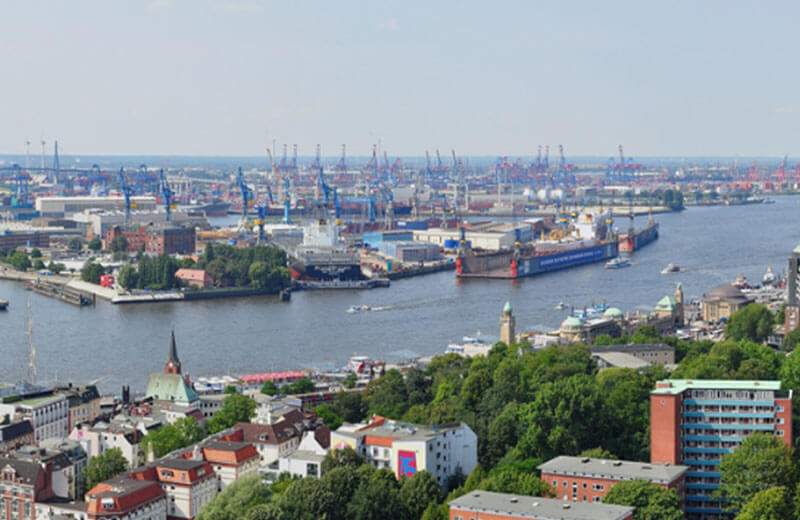
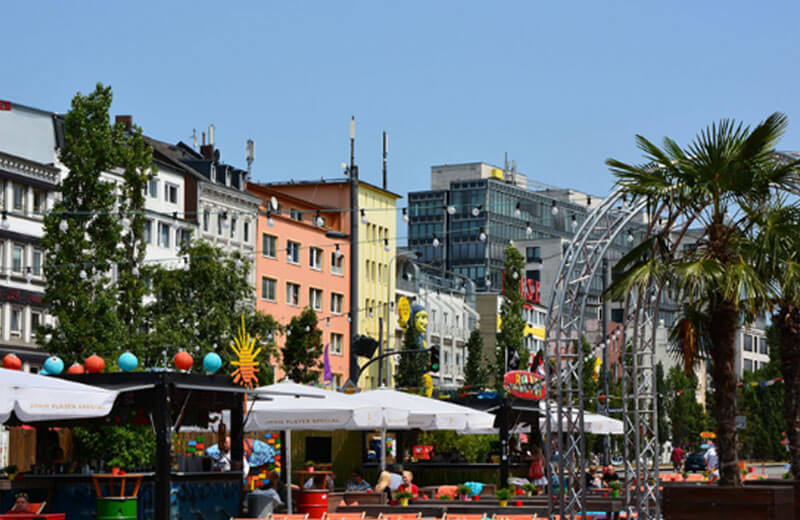
COMING TO GERMANY / HAMBURG
FROM INSIDE THE EU
Visa and residence permit
Nationals of the European (EU) have the right of free movement within all countries in the EU. They need neither avisa for entry into Germany nor a residence permit for thier stay. Moreover, EU citizens have unrestricted access to the labour market in Germany. EU citizens can stay in Germany without conditions for a period of three months. All you need is a valid ID document (Identity card or passport).
The following groups have the right to stay in Germany for longer than 3 months:
- Employed or self-employed persons
- Jobseekers (Up to 6 months)
- Non-employed persons, as well as students and trainees who have a secure livelihood and health insurance
- Permanent residents
- Family mebers of the persons metioned above
Citizens of Iceland, Liechtenstein and NOrway have the same rights as EU citizens. They, too, enjoy the right of free movement.
Swiss citizens also enjoy freedom of movement within the EU. Although they are exempt from the requirement of a residence title, Swiss citizens can still apply for a declaration-only residence permit-Switzerland as an electronic residence title at their relevant immigration authority (https://www.hamburg.com/welcome/entry-residence/immigration-registration-offices/). The relevant immigration authority depends on your place of residence.
Registering your address
All residents in Germany are obliged to register their residential address ith the authorities as soon as possible, for instance after moving to Hamburg from abroad or after moving within Hamburg.
You should register your new address within two weeks after moving into your new home. This can be done at your local custimer service center (Kundenzentrum). Booking the appointment is enugh to meet the two-week deadline. After registration, you will receive a "Meldebescheinigung" (Proof of residence) whcih you need to open a bank account, get German health insurance, apply for a residence permit, enroll into university school and get a mobile phone number.
Book an appointment online (https://serviceportal.hamburg.de/HamburgGateway/Service/Entry/DigiTermin) (Termin buchen) at any customer service center (Kundenzentrum). Select "Einwohnerwesen", tick the box that you can accent the privacy policy and fill in the personal details column. Under "Meldewesen" choose "Wohnsitz, Anmeldung als Hauptwohnsitz". Choose the time and customer service center you prefer to confirm the appointment. Here you can find a detailed guide in English on how you can book a registration appointment online.
What should you bring?
- Registration from (filled out and signed)
- Landlord /-lady confirmation "Wohnungsgeberbescheinigung"
- Official photo identification (identification card or passport) for every registering person
- When moving abroad: In the case of children, the birth certificate must be presented in the appropriate from (international certificate or apostille / legalization carried out by a sworn transalator in Germany) and all persons subject to registration must be present in person
- Administration fee: EUR 12
In addition, further documents must be submitted by:
- Married/ Partnered couples: marriage certficate (original)
- Divorcees: divorce degree (original)
- Widowed persons: death certificate (original)
- Holders of an electronic residence permit (eAT): the residence permit
FROM OUTSIDE THE EU
Visa
Whether you require a visa for entering Germany depends on your nationality. Most foreign nationals from countries outside of the European Union, European Economic Area and Switzerland require a visa to enter Germany. Visas typically need to be applied for at the German Mission Abroad in the applicant's home country. You can use the visa navigator provided by the federal foreign office to find out if you need a visa and which one you need.
Nationals from some countries, including Australia, Israel, Japan, Canada, Republic of Korea, New Zealand, United Kingdom, Great Britain and Northern Ireland and the United States are exempted from the Visa requirement. They can enter Germany without a Visa and stay up to 90 days or apply for a residence permit locally. The same applies to nationals of Andorra, Brazil, El Salvador, Honduras, Monaco and San Marino, provided that gainful employment is not taken up.
Please note that in the case of visa-free entry and application for a residence permit in Germany, at leat four to six weeks should be planned for the application process. Taking up work is only possible after permission has been granted by the Immigariton office.
Schengen Visa (for short term visits)
The Schengen Visa is valid for short term stays (up to 90 days per any 180 days). With this Visa you are alllowed to stay within the entire Schengen Area. A Visa for short term stays is not required for nationals of those countries for which the European Community has abolished the Visa requirement. Consult this List for an overview of countries whose citizens require/ do not require Visas to enter Germany.
HOUSING
Housing
As an international student of the SfSH you can make use of our connection to StudierendenWerk Hamburg. The StudierendenWerk offers 2-3 rooms to our international students yearly. The rooms are part of shared apartments. you can have between 1- 12 other flat mates. You have the choice between a furnished or an unfurnished room. Proces vary depending on furnishing and flat size and move between 270- 435€ per month. Of course you have a choice regarding the room's conditions. However, the offer will depend on what rooms are currently available.
If you are interested in renting a room with StudierendenWerk Hamburg, please contact our office as soon as possible but no later than the begnning of July.
Besides this option, there is of course the possibility to search for housing yourself. Various websites can assist you in finding your new home in Hamburg. Below you can find a list with our suggestions:
- Immowelt
- Urban Living Hamburg
- Housing Anywhere
- WG gesucht
- Wg Suche
- WG Zimmer
- Air BnB
- City wohnen
